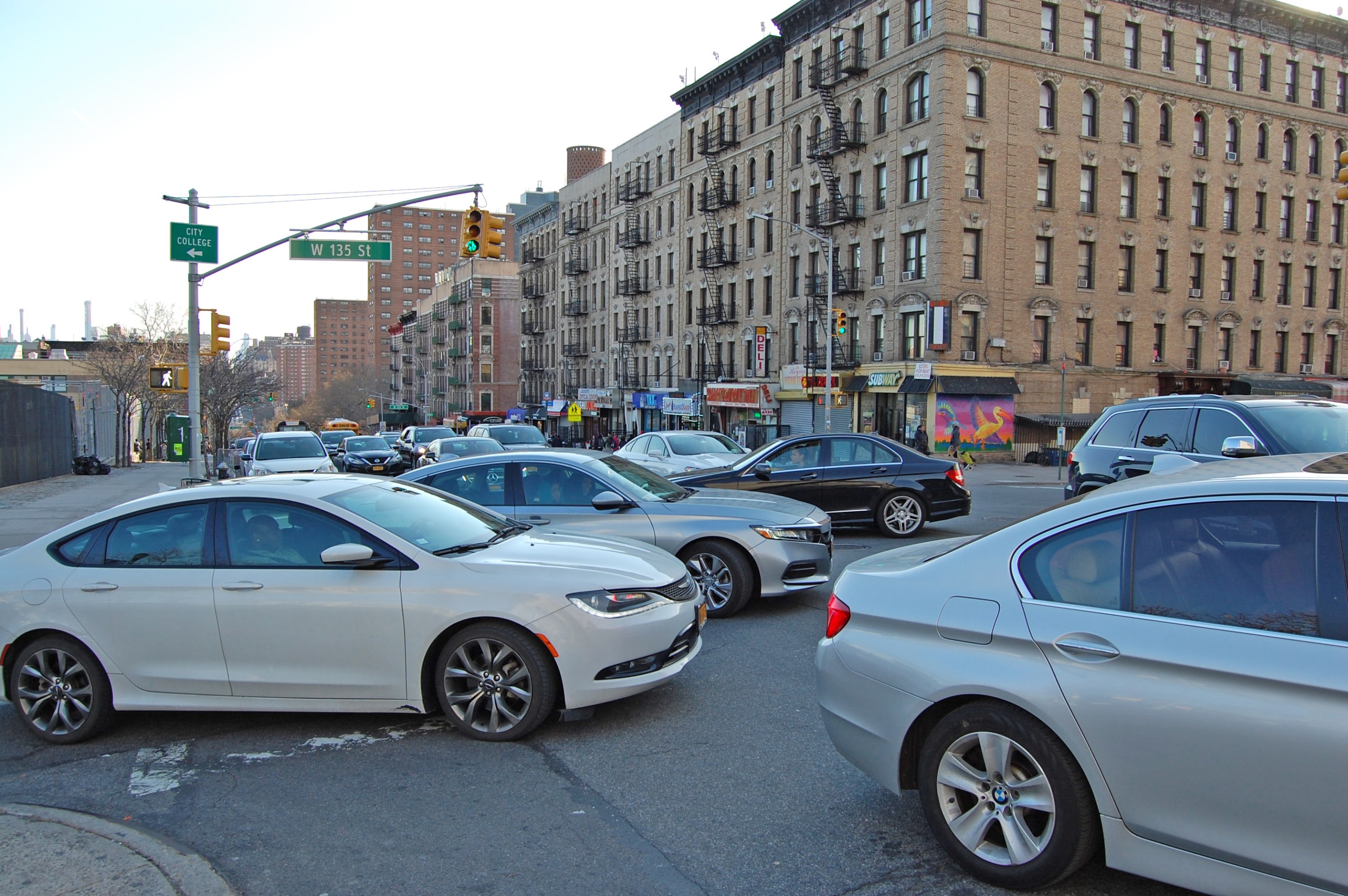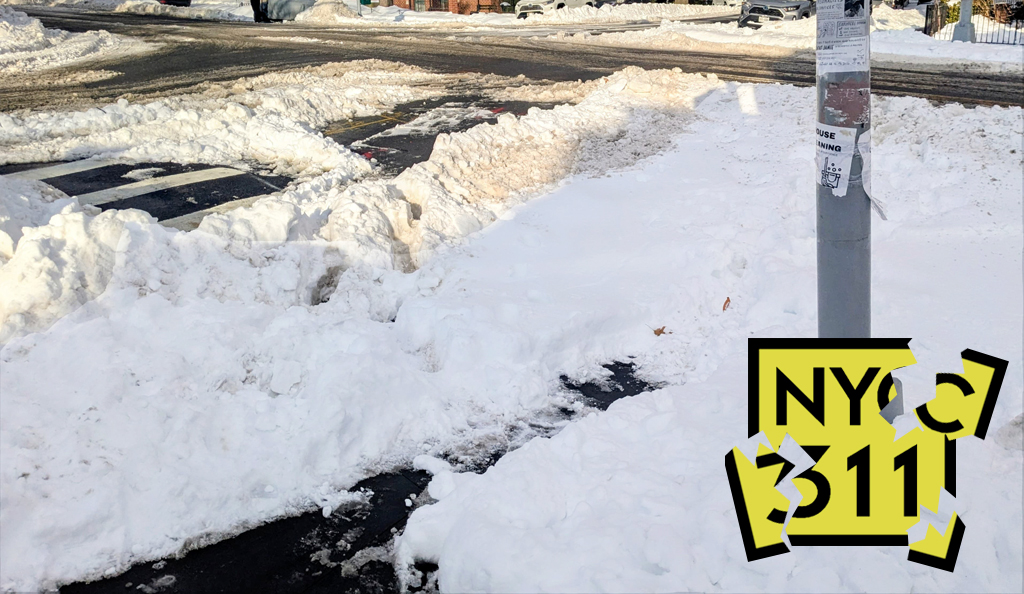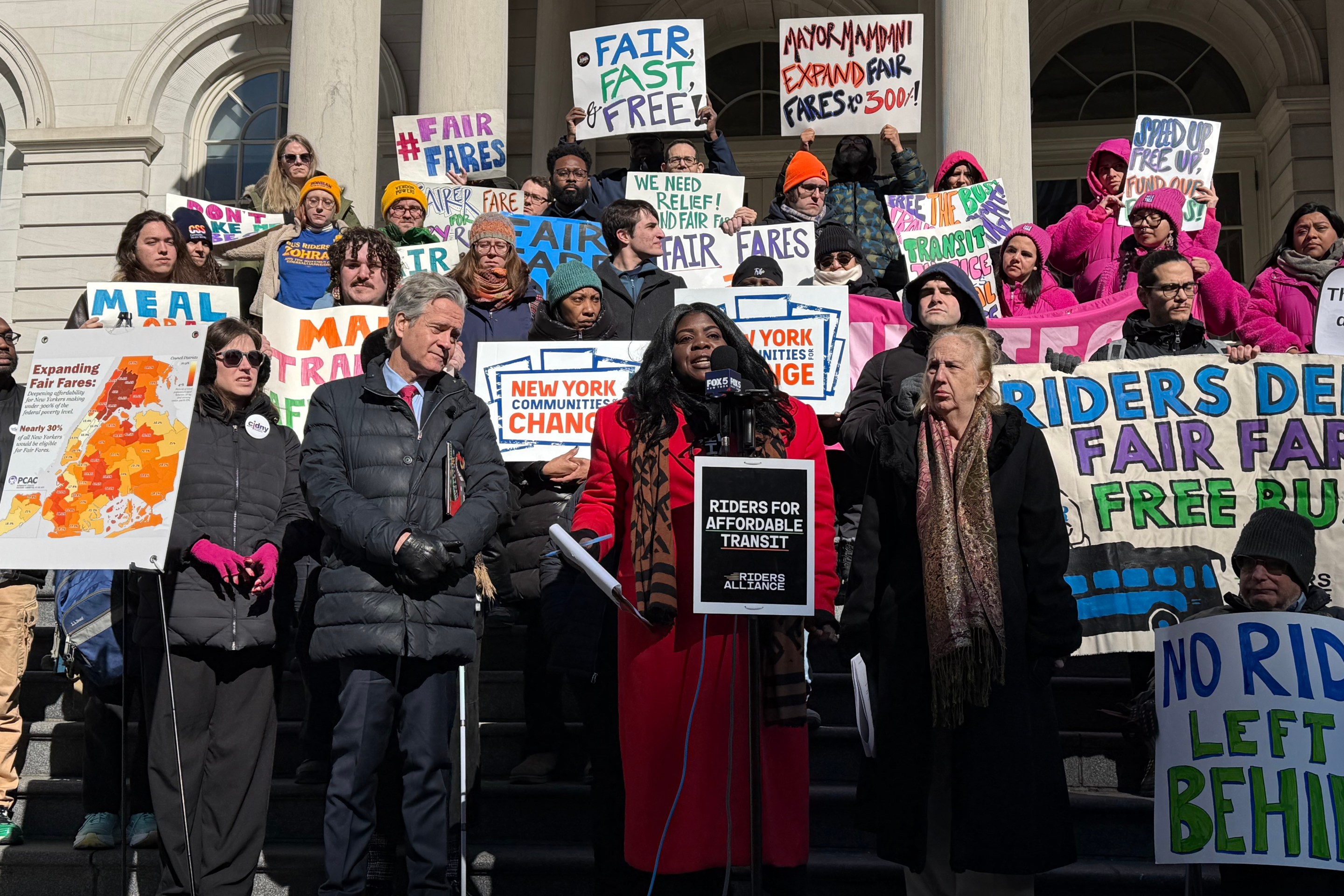Mayor de Blasio will move ahead with critical safety improvements along a dangerous stretch of Amsterdam Avenue, overruling a Manhattan community board that has for years opposed the changes — the latest example of a growing trend of setting aside the objections of boards that put the supposed interests of drivers ahead of safety for all.
The de Blasio administration informed Community Board 9 this morning of its decision to install the so-called "road diet" between 113th and 162nd streets — where 27 cyclists, 58 pedestrians and 116 motorists have been injured, and one killed, in 927 reported crashes in just the two years since the Department of Transportation first presented its plan to the panel in March, 2017.
“I lived along Amsterdam Avenue in my college days, and even then, speeding on this street endangered residents of Morningside Heights and Harlem,” said DOT Commissioner Polly Trottenberg, announcing the decision for the mayor. “The changes we will bring to Amsterdam Avenue this summer are proven measures that will calm traffic and create safer spaces for pedestrians and cyclists.”
There is little controversial about the street design plan [PDF], which would reduce the current speedway from two lanes of travel in each direction to one, plus left-hand turning bays that help prevent backups, and a painted bike lane on each side. No parking will be lost in the redesign — but board members have long objected on the mistaken belief that automobile drivers will have longer commutes.
“All it’s going to do is slow traffic down,” the board's Transportation Committee Chairwoman Carolyn Thompson famously said at a meeting last year. “Every time you say you’re taking out a lane, you’re slowing traffic down. I don’t care what they’re saying, it slows traffic down.”
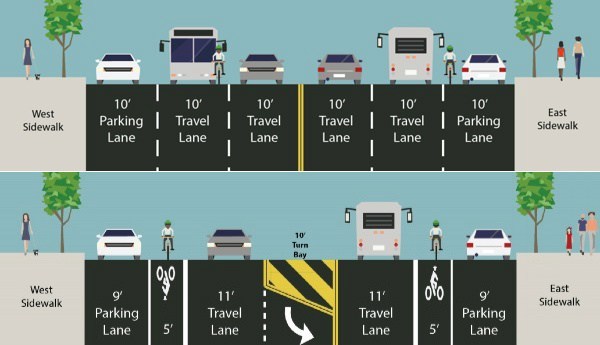
Thompson has a long history with ignoring facts. She has also said that she does not believe census figures that show only 20 percent of households in the district own cars.
“I don’t know what [the number] is, but I know it’s not that,” she said.
The mayor had considerable backing for his move, with Manhattan Borough President Gale Brewer and the local Council Member Mark Levine urging the redesign. Brewer, at one point, told CB9 that the amount of carnage on the roadway “is absolutely unacceptable.”
As recently as last week, both pols sent a letter to de Blasio requesting that he "immediately move forward" with the plan, which would complement improvements made below 110th Street because the existing wide roadway "encourages drivers to regularly drive twice the legal speed limit."
It was just such a driver, albeit also under the influence of drugs, who hit and killed Erica Imbasciani on March 22. In the hours after that killing, many activists again called on CB9 to set aside its opposition, but the board actually doubled-down on its intransigence. In a virtually unprecedented move, board Chairman Padmore John called a press conference days later to defiantly restate its opposition to the street safety plan that might have saved her.
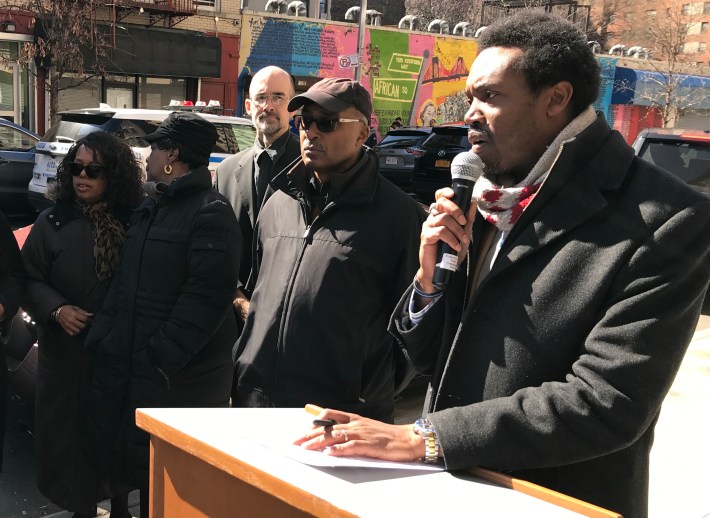
“The board is adamant that this tragedy should not be used to force these [safety] measures on us,” John said, maintaining through it all that CB9 “unanimously supports safety improvements on Amsterdam Avenue.” That support was, in fact, non-existant; as evidence of the board's support, John provided reporters with a resolution that the board had passed one day before Imbasciani's death that declared, “the board cannot give support for this project.”
He claimed the board only objected to the city proposal, not safety improvements in general. The city has tweaked its plan several times to reflect local concerns, but the plan remained in limbo until Mayor de Blasio's approval on Thursday.
Trottenberg gave a nod to the helpful support of local officials.
"We thank the community’s elected officials — Borough President Brewer, Council Member Levine and State Senator [Robert] Jackson — for their leadership and unqualified support for a project that we believe will save lives," she said.
The mayor has increasingly shown he will move ahead with street safety plans despite objections by local community boards. He did as much along Morris Park Avenue in the Bronx and, most famously, last year when he approved protected bike lanes through Sunnyside.
But the Department of Transportation has been under fire recently for seeming to go out of its way to seek the approval of even community boards that do not reflect the needs of their populations or the positions of elected officials in the area. More and more activists and local pols are demanding that DOT Commissioner Polly Trottenberg make decisions simply based on the well-documented track record of safety after redesigns rather than seeking approval from people who will never give it.
Council Member Antonio Reynoso blasted Trottenberg earlier this year for her practice of allowing community boards to “dictate how and when bike lanes should be built based on anecdotes and personal experiences instead of expertise.”
"No more community board conversations," Reynoso added. "Use safety to dictate exactly what you should be doing. It’s frustrating. … You always go to these community boards. ... Just stop. ... Build them where you think they are appropriate. The Police Department would never ask a community board for permission to operate in a building if they thought drugs were being sold there. No, they just do the work because they think it’s appropriate.”
Council Speaker Corey Johnson has also said the city needs to defer less to community boards when lives are on the line.
Brewer Levine Amsterdam Redesign 19.04.16 by Gersh Kuntzman on Scribd
